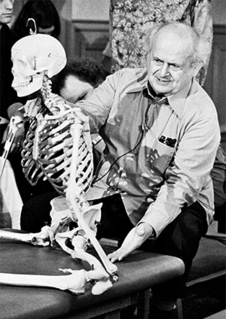A Quote by Pema Chodron
Difficult things provoke all your irritations and bring your habitual patterns to the surface. And that becomes the moment of truth. You have the choice to launch into your lousy habitual patterns, or to stay with the rawness and discomfort of the situation and let it transform you.
Related Quotes
When you refrain from habitual thoughts and behavior, the uncomfortable feelings will still be there. They don’t magically disappear. Over the years, I’ve come to call resting with the discomfort “the detox period,” because when you don’t act on your habitual patterns, it’s like giving up an addiction. You’re left with the feelings you were trying to escape. The practice is to make a wholehearted relationship with that
Visualizing, creative mental picturing, is no more difficult than what you do when you remember some scene out of the past, or worry about the future. Acting out new action patterns is no more difficult than deciding, then following through on tying your shoes in a new and different manner each morning, instead of continuing to tie them in your old habitual way, without thought or decision.
There are only patterns, patterns on top of patterns, patterns that affect other patterns. Patterns hidden by patterns. Patterns within patterns. If you watch close, history does nothing but repeat itself. What we call chaos is just patterns we haven't recognized. What we call random is just patterns we can't decipher. what we can't understand we call nonsense. What we can't read we call gibberish. There is no free will. There are no variables.
The mind is a magnet and we attract that with which we identify the self. In order to get the most out of life we must learn consciously to change many of our habitual thought patterns. This is not easy, for our old thought patterns cling to us with great tenacity, but, being thought patterns, they can be reversed. If you are filled with fear, refill yourself with faith, for faith always overcomes fear.


































